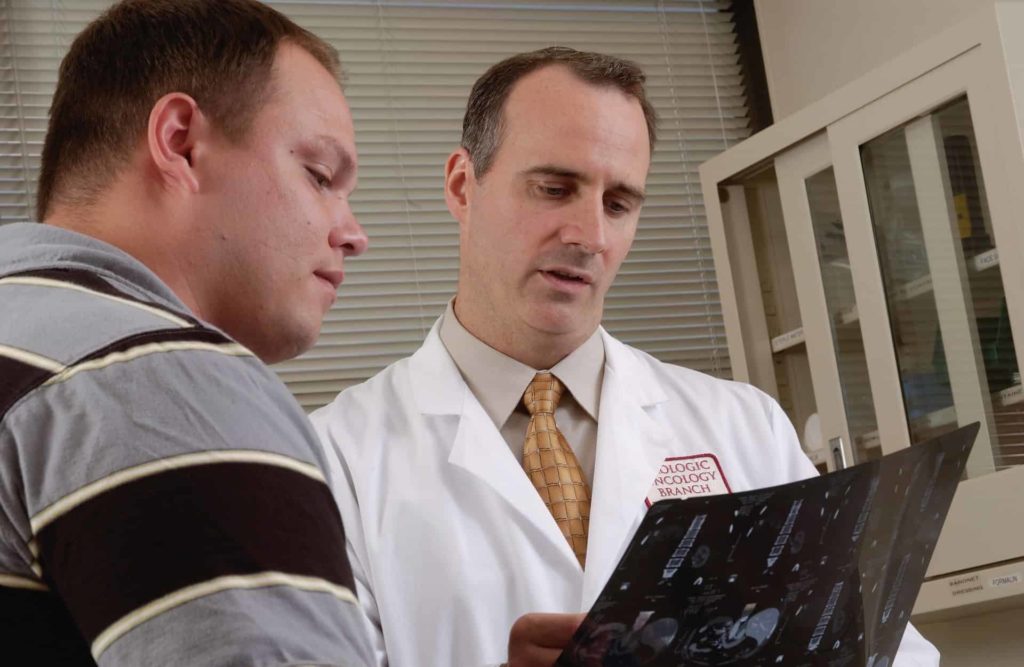
In many ways, the world of healthcare is rapidly changing, and not just due to the rapid development of astounding new procedures, medicines, and advanced medical technologies. Many medical providers are steadily shifting towards a critical emphasis on patient-centered care, which incorporates a respectful and responsive approach to patients’ preferences, needs, and values. But what, exactly, is patient-centered care, and why is it so critical in the current age of the medical world?
Below, our dedicated medical experts from OptiMed Hospitalists will explore the importance of patient-centered care and the various elements that make it beneficial for so many people.
Related: Artificial Intelligence in Healthcare
What is Patient-Centered Care
In short, patient-centered care is dedicated to focusing on patients from an individual standpoint while carefully considering their unique health care needs. The primary goal of patient-centered care is to provide them with quality, customized care solutions while empowering them to be active decision-makers in their care. This tactic requires that physicians- alongside other key healthcare providers- develop and leverage exceptional communication skills while directly addressing patient needs as effectively as possible. It also requires medical personnel to advocate for patients while striving to provide safe, comprehensive care that promotes optimal healing and wellness.
The Elements of Patient-Centered Care

A wide range of essential elements makes patient-centered care possible and highly effective at providing patients with everything they need to get healthy and take more control of the goings-on within their journey to wellness. These elements primarily relate to how health facilities and systems are designed and managed and how medical care is provided to patients who need it. For example, in patient-centered care;
- The health care system’s values, mission, vision, and operations align with patient-centered goals.
- Focus is placed on the physical comfort of patients and their emotional wellbeing.
- Care is coordinated, collaborative, and accessible for patients.
- Patients’ preferences, values, cultural traditions, socioeconomic status, and families are respected.
- Patients and their families are part of the care team and play a significant role in decision making.
- Family participation in care is encouraged.
- All information is shared thoroughly and quickly to help promote informed decisions by all involved parties.
Are you the operator of a hospital, nursing home, or assisted living facility in desperate need of top-quality providers of in-patient care? Please consider contacting our team of medical specialists at OptiMed Hospitalists today to learn how our services can help you meet all your patients’ needs.
Co-Creation of Care
The co-creation of care is a significant component of a patient-centered healthcare approach. It involves providers engaging collaboratively with patients to create more valuable care, which is especially critical for multi-morbidity patients. This tactic can help improve patient outcomes by supporting baseline patient-centered care efforts, which actively promote the physical, social, and mental wellbeing of patients by encouraging their participation throughout their wellness journey.
Patient-Centered Care and Patient Outcomes
According to comprehensive research, the use of a patient-centered care approach alongside co-creation of care was strongly correlated with positive satisfaction from patients, along with improvements to their overall wellbeing and treatment outcomes. By making treatment options more tailored to patients’ needs, wants, and values on an individual level, healthcare providers can significantly increase the value of their care while better promoting patient wellness.
Related: How Healthy is America Compared to Other Countries?
Benefits of Patient-Centered Care
While we’ve noted the impacts of patient-centered care above on treatment outcomes, let’s delve a bit deeper into some of the other critical benefits that patient-centered care can offer when leveraged effectively by passionate, highly-trained, and dedicated healthcare providers. These include;
- Increased financial margins and reduced expenses throughout the care
- Improved satisfaction scores from patients and families
- Enhanced reputation for healthcare providers
- Enhanced levels of resource allocation
- Better productivity and morale among healthcare providers
Examples of Patient-Centered Care

Patient-centered care is leveraged in several ways and across a wide range of healthcare settings. Some common examples include;
Related: Hospital Staffing Challenges During The Pandemic
Patient-Centered Care in Hospital
Hospitals that leverage a patient-centered care approach to operations has seen massive changes to support patient autonomy and decision-making. Family members are no longer restricted by ridged visiting hours, and they are well-informed of their loved-ones progress. Patient and family collaboration is also highly emphasized, and hospital infrastructure is shifting to provide a more home-like environment that better meets the needs of patients and their families.
Patient-Centered Care in Doctor’s Office
With patient-centered care, doctor’s offices can focus on more than just a patient’s diagnosis and develop trusted, personal relationships to support the patient’s continued care needs. Patient-centered care lets doctors see beyond any immediate symptoms or pain and emphasizes the importance of empathy, two-way communication, and the development of more personal connections to provide high-quality care. Though direct human interaction is critical, physicians can also leverage a wide range of tools and technology to help support patients and allow them to take ownership of their healthcare outside the doctor’s office.
Personalized Medicine
Patient-centered care also extends to clinicians’ various therapies and treatments, which now feature highly customized plans to support successful patient outcomes. Medications are also customized to support the needs of the patient’s individual biomarkers, metabolism, immune system, genetics, and other critical elements. These tactics have helped promote the more effective use of medications and treatments for various conditions. However, the impact it has on cancer patients has been exceptionally notable.
Last Words
Our experts from OptiMed Hospitalists sincerely hope that the above information has helped you better understand the essential nature and importance of patient-centered care. We also hope that it encourages you to seek medical providers who focus on providing such care to all of your patients. Please consider reading through our selection of other educational resources to learn more about critical medical topics!
At OptiMed Hospitalists, we understand the importance of providing top-quality, expertly-managed in-patient care to those who need it most. We’re fully dedicated to providing a different type of innovative patient care, so we can gain the trust of patients and partners by fostering long-term relationships.
